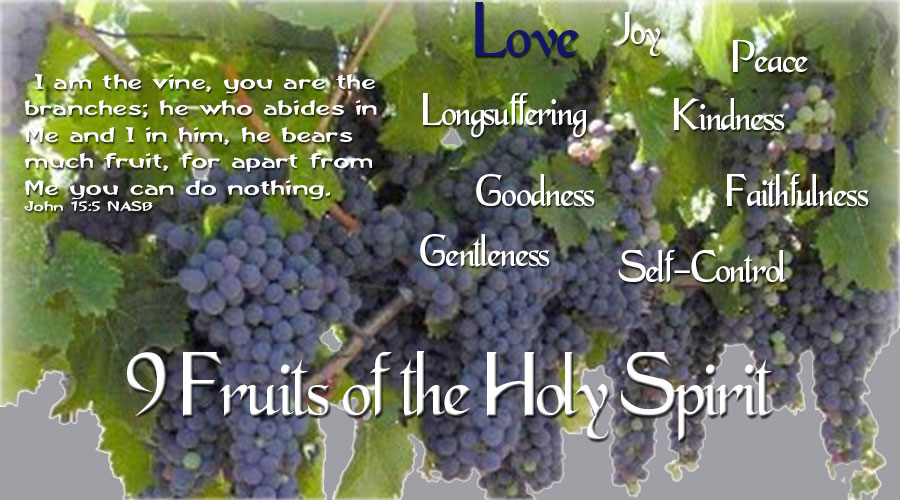“But the fruit of the Spirit is love, joy, peace, patience, kindness, goodness, faithfulness, 23 gentleness, self-control; against such things there is no law.” Galatians 5:22-23 ESV
The Webster dictionary defines love as “a feeling of strong or constant affection for a person…unselfish loyal and benevolent concern for the good of another…a person’s adoration of God…warm attachment, enthusiasm, or devotion…the object of attachment, devotion, or admiration”. What is interesting to me is nowhere in Webster’s definition did it describe “loving ourselves”.
In ancient Greek there was six different definitions for the word “love”.
- Eros – Named after the Greek god of fertility, eros represented the idea of sexual passion and desire. The ancient Greeks viewed eros to be a dangerous and irrational form of love which could possess you.
- Ludus – This represented the love between siblings or young lovers. In young adults it was a flirting type of love in the early stages of the relationship.
- Philia – This was a deep friendship type of love that brothers in arm would show toward each other as they fought side-by-side in battle. It was about the loyalty and sacrifice they showed for each other.
- Agape – A selfless love one extends to everyone whether they be family or strangers. It is a charity type of love, a “gift of love” deemed to be the highest form of love Christians can show.
- Philautia – This is a love of self. There are two different types of philautia:
- an unhealthy one where one is self-obcessed and focused on oneself – narcissism
- when you are secure in yourself and like yourself
- Pragma – A longstanding or mature love developed between couples who have been married for years. It is about giving love as much as receiving love.
The first step in “Finding Our Identity in Christ” is learning the concept of how to be thankful to God for the person He has created in us. Learning to appreciate the gift of life God bestowed to us. We are unique, loved, treasured and created by God the Father in a very special way for a very special relationship with Him. God has a “special” plan for us and He is longing to see that relationship grow and prosper.
We are born into sin with a sinful nature that dictates, along with society, that we have to be a certain person. This sinful nature can cause us to harbor things like self-rejection, self-hatred, bitterness, unforgiveness, low self-esteem, shamefulness, worthlessness, and feelings that we are ugly and/or stupid. This list can go on and on.
“Then God said, “Let us make man in our image, after our likeness. And let them have dominion over the fish of the sea and over the birds of the heavens and over the livestock and over all the earth and over every creeping thing that creeps on the earth.” Genesis 1:26 ESV
Just think about what God is saying in Genesis 1:26, He made us in His own image. He molded us to be His likeness, so if we have having negative feelings about ourselves, essentially we are saying that God is negative in the same way. It is so vitally important that we first understand God’s love for us, how He loves us and why He loves us. Before we can love others, we first have to learn how to love ourselves, the way God loves us!
In Psalm 139:14 ESV, “I praise you, for I am fearfully and wonderfully made. Wonderful are your works; my soul knows it very well.” King David was showing God how thankful he was for the beautiful creation God had made when He breathed life into King David. He was thankful and rejoiced that God had created him.
In learning to love ourselves we also have to learn to forgive ourselves in the same way that God forgives us. When we learn to forgive ourselves we learn how to forgive others that have wronged us.
At birth we come into this world with a longing to both give and receive love. God’s love is unconditional and that is what He wants us to experience! The key to truly finding how to love is found in 1 Corinthians 13:1-3 ESV, God teaches us The Way of Love, “13 If I speak in the tongues of men and of angels, but have not love, I am a noisy gong or a clanging cymbal. 2 And if I have prophetic powers, and understand all mysteries and all knowledge, and if I have all faith, so as to remove mountains, but have not love, I am nothing. 3 If I give away all I have, and if I deliver up my body to be burned, but have not love, I gain nothing.”
God is teaching us how to find our purpose in life through love. Without love our lives are worthless and without true meaning. When we love, we are actually giving of ourselves. The Hebrew word for “love” is “Ahava” which means “I give” and “love”. Look at John 3:16 ESV, “For God so loved the world, that he gave his only Son, that whoever believes in him should not perish but have eternal life.” God loved us so much and strongly desired that we are to have eternal life with Him that He gave his only son to die for us and our sins! There is no better example that can be found of how love involves giving.
Once we allow God, through His Word, to show us how to love ourselves, He teaches us how to love others. Look at Mark 12:30 ESV, “And you shall love the Lord your God with all your heart and with all your soul and with all your mind and with all your strength.’” Jesus tells us that the most important commandment is to love God with all our heart, all our mind, and with everything we have to give. We learn how to accomplish this by basking in His Word, by seeking Him with our whole heart. When we seek God He will reveal himself to us. God even tells us this in James 4:8 ESV, “Draw near to God, and he will draw near to you. Cleanse your hands, you sinners, and purify your hearts, you double-minded “
“The second is this: ‘You shall love your neighbor as yourself.’ There is no other commandment greater than these.” Mark 12:31 ESV
Once we learn how God wants us love ourselves, He tells us in Mark 12:31 to love our neighbors as we have learned to love ourselves. This is the 2nd most important commandment. We can receive the true richness of the Holy Spirit when we learn how to love our neighbors as we have learned to love ourselves.
Through our words and actions we release our love into others. When we plan to do something or when we say something that makes someone else feel loved and cared for, we our releasing how we have learned to love to them. We are making them feel loved as God has made us feel loved. The same way God gave us grace for our imperfections is the same way we are to show grace to others. We pass that grace in love on to others.


